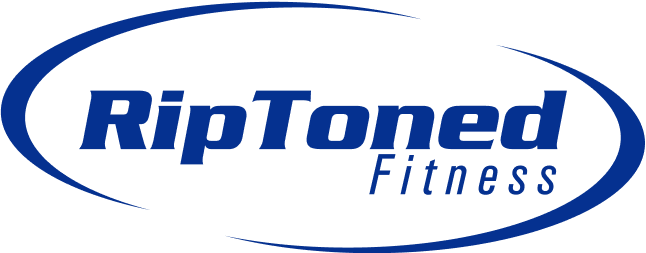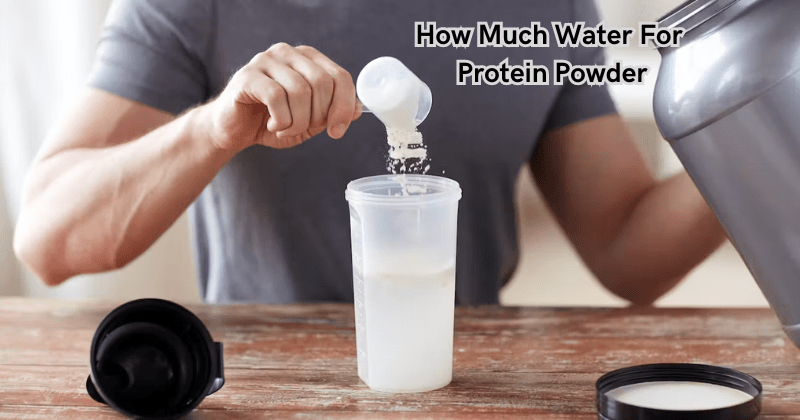
How Much Water For Protein Powder
Mark PasayShare
Protein powder has gained immense popularity in recent years due to its numerous health benefits and convenience. It is a great source of protein for individuals looking to build muscle, lose weight, or maintain a healthy lifestyle. However, there is often confusion surrounding how much water should be used when mixing protein powder.
The amount of water needed for protein powder can vary depending on the brand, type of protein, and individual preferences. The general rule of thumb is to use 6-12 ounces of water per scoop of protein powder.
However, factors such as desired consistency, time of consumption, and purpose can also impact the amount of water required. In this article, we will discuss the importance of proper hydration when consuming protein powder and provide tips on how much water you should use to maximize its benefits.
What is Protein Powder, and Why is Hydration Important
Protein powder is a dietary supplement that provides a concentrated source of protein. It is typically made from various sources such as whey, casein, soy, egg, or plant-based proteins and comes in different forms, including powders, bars, or shakes. Consuming enough protein is essential for our overall health as it helps build and repair tissues, maintain proper immune function, and regulate hormones.
When it comes to protein powder, proper hydration is crucial for two main reasons. First, protein synthesis (the process of building muscle) requires water to occur effectively. Without enough water, the body cannot properly use the protein to repair and build muscles. Second, staying hydrated can help prevent potential side effects of consuming too much protein, such as constipation or kidney issues. Therefore, it is vital to ensure adequate hydration when incorporating protein powder into your diet.
How Much Water Should You Use for Protein Powder
As mentioned earlier, the recommended amount of water to use with protein powder is 6-12 ounces per scoop. However, this can vary depending on individual preferences and goals. For example, if you prefer a thicker shake, you may opt for less water. On the other hand, if you are consuming protein powder post-workout, adding more water can aid in faster absorption and recovery.
It is also essential to consider the type of protein powder being used. Some proteins, such as casein, require more water than others due to their slower digestion rate. Additionally, factors like the time of consumption can impact the amount of water needed. For instance, consuming protein powder before bed may require less water as you do not want to wake up in the middle of the night to use the bathroom.
Benefits of Proper Hydration with Protein Powder
Proper hydration when consuming protein powder has several benefits. Firstly, as mentioned earlier, it promotes effective protein synthesis, which is crucial for building and repairing muscles. Secondly, staying hydrated can help prevent potential side effects such as digestive issues or kidney problems, thus promoting overall health and well-being.
In addition to these benefits, adequate hydration can also aid in better nutrient absorption. Water helps transport nutrients, including protein, to the cells in our body, ensuring they are utilized efficiently. Furthermore, staying hydrated can help keep you feeling fuller for longer, which may aid in weight loss or weight management goals.
Staying hydrated can also improve athletic performance and endurance, making it beneficial for athletes and individuals with an active lifestyle. Lastly, proper hydration plays a significant role in maintaining healthy skin and other bodily functions. Therefore, ensuring adequate hydration when consuming protein powder is essential for maximizing its benefits.
Mistakes to Avoid When Using Protein Powder
Here are some common mistakes to avoid when using protein powder:
- Using too much or too little water: As discussed, the amount of water needed for protein powder can vary. It is important to follow the recommended guidelines and adjust accordingly based on individual preferences and goals.
- Not drinking enough water throughout the day: Consuming protein powder without adequate hydration may not provide optimal results. Drinking enough water throughout the day is essential to staying hydrated and promoting overall health.
- Not using a shaker bottle or blender: Mixing protein powder with just a spoon may result in clumps, making it difficult to consume. Using a shaker bottle or blending your protein shake can help create a smooth and consistent texture.
- Consuming protein powder without any water: Some individuals may opt to consume protein powder dry, but this can lead to digestive issues and discomfort. It is crucial to mix it with water or another liquid for easier digestion.
By avoiding these mistakes and ensuring proper hydration, you can maximize the benefits of protein powder and achieve your health and fitness goals. Remember to always consult a healthcare professional before making any significant changes to your diet or exercise routine.
Related Products
How much Protein Powder Should You Consume?
The amount of protein powder you should consume depends on various factors such as your body weight, fitness goals, and daily protein intake from other sources. Generally, it is recommended to consume 0.8-1 gram of protein per kilogram of body weight. For example, if you weigh 150 pounds (68 kg), you should aim for 54-68 grams of protein per day.
It is essential to also consider the amount of protein already consumed from whole foods such as meat, eggs, and dairy products. Protein powder can serve as a convenient source of protein but should not be relied on solely for meeting your daily protein needs. Consult with a healthcare professional or registered dietitian to determine the appropriate amount of protein powder for your specific needs.
Tips for Incorporating Protein Powder into Your Diet
Here are some tips for incorporating protein powder into your diet:
- Mix with water, milk, or other liquids: Protein powder can be mixed with a variety of liquids, such as water, milk, almond milk, or coconut water. Experiment to find which combination works best for you.
- Add to smoothies: Protein powder can be a great addition to any smoothie, providing an extra protein boost without changing the taste too much.
- Use in recipes: Protein powder can also be used in baking or cooking recipes, such as pancakes or energy bars. This is a great way to add protein to your meals and snacks.
- Consume post-workout: Protein powder can aid in muscle recovery and growth. Mix it with water for faster absorption, or add it to a smoothie with some carbohydrates for added energy.
- Consider timing and frequency: It is important not to rely solely on protein powder for your daily protein intake. Use it as a supplement and aim to consume most of your protein from whole foods. Protein powder can be consumed at any time of day, but post-workout and before bed are popular options.
Remember always to read the label and ingredient list when purchasing protein powder and choose a high-quality product from a reputable brand. Consult with a healthcare professional for personalized recommendations on incorporating protein powder into your diet.
FAQs
How much water should I use to mix my chosen protein powder for the perfect protein shake?
The amount of water required can vary depending on the type of protein powder and your taste preferences. As a general rule, for whey protein, a common ratio is one scoop of powder to 6-8 ounces of water. However, you can adjust this to make your protein shakes thicker or thinner according to your preference.
Can protein shakes help me build muscle mass and reduce body fat?
Yes, protein shakes can be beneficial for both building lean muscle and reducing body fat. Protein is a complete nutrient that provides the essential amino acids your muscles need to repair and grow after a workout. Consuming a post-workout shake with whey protein and water or skimmed milk can support muscle recovery and growth. In addition, protein can also help you feel fuller for longer, which can aid in weight management.
What if I want to consume more protein but experience stomach discomfort?
If you're experiencing stomach discomfort after consuming protein shakes, it might be due to lactose intolerance, as some protein powders, especially whey protein, contain lactose. Try using water instead of milk to mix your protein powder, or consider switching to a plant-based protein powder. Always consult with a healthcare professional if discomfort persists.
Can I use skimmed milk instead of water for my protein shake?
Absolutely. Mixing your chosen protein powder with skimmed milk instead of water can provide additional protein and nutrients. It can also make your shake creamier and more flavorful. However, keep in mind that this will also increase the calorie content of your shake, so it's important to factor this into your overall diet if you're monitoring your calorie intake.
Conclusion
In conclusion, proper hydration is crucial when consuming protein powder to maximize its benefits and avoid potential side effects. It is important to find the right amount of water for your specific needs and goals, as well as to incorporate protein powder into your diet in a balanced way.
By following these tips and consulting with a healthcare professional, you can make the most out of protein powder and achieve your health and fitness goals. Remember to listen to your body, make adjustments as needed, and always prioritize overall health and well-being.

Related Posts
-

Unlock Your Strength Potential: Conquer Weak Grip Strength Now
...
-

Bench Press to Success - Mastering your form
...
-

5 Tips for Women to Build Lean Muscle Tone in 2024
...
-
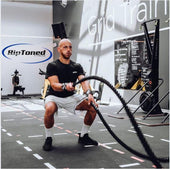
How to Get the Most Out of a Lifting Session
...
-

Working Out Under the Weather
...
-

The Lesser-known Benefits of Weightlifting
...
-

How Weight Training Supports Immune Health
...
-

The History of Weightlifting
...
-

Rest up to build up
...
-

4 Tips to Improve Lifting Gains The Right Way
...
-

4 Tips to Prevent Training Injuries
...
-

Top 3 Work Out Myths EXPOSED!!
...
-

Common Lifting Injuries (And How to Avoid Them)
...
-
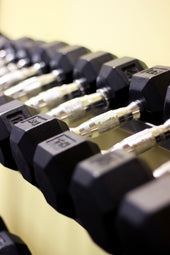
Hit the Gym or Stay at Home?
...
-

Weightlifting Benefits – Many Health Benefits for Men and Women
...
-

Crush Your PRs: The Gradual Strength Increase Guide for CrossFitters
...
-

Whey vs Collagen Protein: Which Is Best for You?
...
-

Can I Take Whey Protein Without Working Out? What You Need to Know
...
-
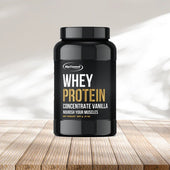
Why Does Whey Protein Hurt My Stomach: Causes and Solutions
...
-

Boost Your Run: Should You Take Pre-Workout Before Running?
...
-

Top Pre-Workout Benefits: Boost Energy and Enhance Performance
...
-
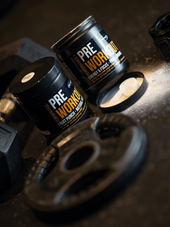
How Long Does Pre-Workout Take to Kick In? Find Out Here!
...
-
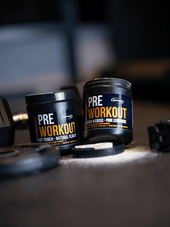
How Long Does Pre-Workout Last? Your Essential Guide
...
-

Does Pre-Workout Give You Pimples
...
-

How Long Does Pre-Workout Stay in Your System
...
-

When Should I Take Pre-Workout
...
-

Can I Mix Creatine With Pre-Workout
...
-

Long Term Side Effects of Pre-Workout Supplements
...
-

How Much Caffeine in Pre-Workout
...
-

Pre-Workout Alternatives
...
-

Does Pre-Workout Break a Fast
...
-

What to Eat Pre-Workout
...
-

What is In Pre-Workout
...
-

Advantages of Pre Workout Supplements
...
-

How To Get Rid Of Pre Workout Itch
...
-

How To Make Your Own Pre Workout
...
-

How Many Scoops Of Pre Workout Should I Take
...
-

How Bad Are Pre Workouts For You
...
-

How Long Before A Workout Should I Take Pre-Workout
...
-

How Much Caffeine Is In Bucked Up Pre Workout
...
-

How Long Does Pre Workout Increase Blood Pressure
...
-

What Does Pre Workout Do
...
-

Can I Use Sprite As Pre Workout
...
-

Can Supplements Boost Weightlifting Motivation
...
-

Why Do Weightlifters Wear Belts
...
-

Does Lifting Weights Cause Varicose Veins? What You Need to Know
...
-

Does Lifting Weights Affect Uterus Health? What Women Need to Know
...
-

How Lifting Weights Can Affect Your Sex Drive: Does Lifting Weights Make You Horny?
...
-

Why Don't I Sweat When I Lift Weights? Understanding the Causes
...
-

Why Are Physical Fitness Attitudes Important? Insights & Benefits
...
-

Why is Anytime Fitness So Expensive? Understanding Membership Costs
...
-

Substitute For Whey Protein Powder In Keto Baking
...
-

How Many Calories Does 1 Hour of Weightlifting Burn
...
-

A Guide To Cleaner Protein Supplementation
...
-

What Causes The Frothiness in Your Fitness Drink
...
-

How to Take Collagen Safely After a Gastric Bypass: Essential Tips
...
-

Why Do Protein Shakes Make Me Nauseous? Top Reasons and Solutions
...
-

Why Does My Stomach Hurt After Protein Shake? Understanding Your Digestive Discomfort
...
-

Can I Take Collagen After Gastric Bypass
...
-

Why Does My Protein Shake Foam
...
-

How Long to See Effects of Collagen
...
-

Can Diabetics Drink Protein Drinks
...
-

How Fast Should You Drink Protein Shakes
...
-

Can You Drink Protein Shakes While Fasting
...
-

Is Organic Protein Powder Good for Weight Loss
...
-

Can Wrist Wraps Boost Your Grip Strength in Weightlifting?
...
-

Should You Use Wrist Wraps for Bench Press and Overhead Press?
...
-

Do Wrist Wraps Help with Wrist Pain During Strength Training? Find Out Here
...
-

How Can Wrist Wraps Prevent Injury During Heavy Lifting?
...
-
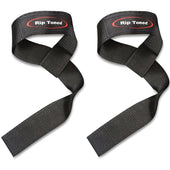
How Do You Use Weightlifting Straps: A Simple Guide for Better Lifts
...
-

How to Pick a Lifting Belt: A Practical Guide for Every Lifter
...
-

How to Measure for Lifting Belt
...
-

Do Weight Lifting Belts Help Lower Back Pain
...
-

Do I Need a Lifting Belt
...
-

Purpose of Weight Lifting Belt
...
-

When to Use a Lifting Belt
...
-

What Does A Lifting Belt Do
...
-

What Do Wrist Wraps Do For Lifting
...
-

How To Wrap A Wrist For Carpal Tunnel
...
-

How To Wrap Wrist For Pain
...
-

What Are Wrist Wraps For
...
-

How Do You Use Weightlifting Straps
...
-

Why Is Mental Focus Important in Powerlifting? The Key to Peak Performance
...
-

Can Bodybuilding Help with Fat Loss? Discover Proven Benefits
...
-

Mastering the Basics: How to Improve Your Powerlifting Technique
...
-

Why Is Proper Form Crucial in Powerlifting? Tips for Safe and Effective Lifting
...
-

Can Powerlifting Increase Athletic Performance? Exploring Strength Gains and Sport Benefits
...
-

Top Tips on How to Avoid Common Injuries in Bodybuilding
...
-

Why Is Recovery Essential in Bodybuilding: Key Strategies and Benefits
...
-

Can Powerlifting Improve Overall Fitness? Explained
...
-

Why Is Nutrition Important in Bodybuilding? Top Reasons Explained
...
-

Can Fitness Habit Creation Lead to Long-Term Success? Here's What You Need to Know
...
-

How to Build a Consistent Weightlifting Routine
...
-

Can Fitness Habit Creation Lead to Long Term Success
...
-

Why Do Weightlifters Need A Strong Mindset
...
-

Can Weightlifting Improve Mental Resilience
...
-

Why is Determination Key in Weightlifting
...
-

How to Create a Fitness Habit That Lasts
...
-

How to Stay Motivated in Weightlifting
...
-

Weightlifting: Your Resilience Workout
...
-

How Does Weightlifting Build Resilience
...
-

Common Powerlifting Injuries
...
-

What is Raw Powerlifting
...
-

What to Eat Before a Powerlifting Meet
...
-

Is Powerlifting Bad for Your Heart
...
-

What is a Powerlifter
...
-

What is Powerlifting
...
-

Why Do Powerlifters Eat Candy
...
-

What Does RPE Mean In Powerlifting
...
-

What Do Powerlifters Sniff Before A Heavy Lift
...
-

Is A Belt Acceptable In A Powerlifting Meet
...
-

Can Powerlifting Build Muscle? Expert Insights and Tips
...
-

Why Are Powerlifters Fat? The Real Reasons Explained
...
-

The Best Guide to Powerlifting After Shoulder Replacement
...
-

Powerlifting vs Bodybuilding: Key Comparisons and Benefits
...
-

Unlock Your Potential: How to Get Stronger Gradually
...
-

Unlock Muscle Growth: Understanding What Is the 6-12-25 Rule
...
-

5 Lbs of Muscle in a Month? Let's Get Real
...
-

Get that celebrity booty in 10 easy to do work out routines
...
-

A.M. vs P.M. Workouts
...
-

Fasting Do’s and Dont's
...
-

5 Surprising Sources of Protein
...
-
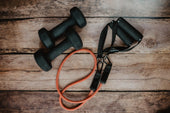
Home Workout Upgrade Must-haves
...
-

Top 5 Reasons You Aren’t Reaching Your Weightlifting Goals
...
-

Squats: A Must in Weightlifting and for Strength Training
...
-

Weightlifting Routines for Men, Women and Beginners
...
